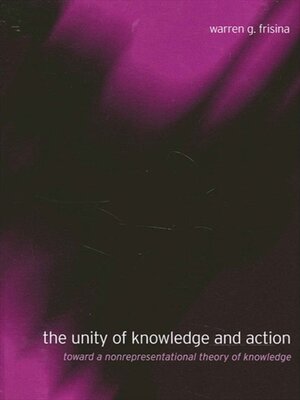The Unity of Knowledge and Action
ebook ∣ Toward a Nonrepresentational Theory of Knowledge · SUNY series in Philosophy
By Warren G. Frisina

Sign up to save your library
With an OverDrive account, you can save your favorite libraries for at-a-glance information about availability. Find out more about OverDrive accounts.
Find this title in Libby, the library reading app by OverDrive.



Search for a digital library with this title
Title found at these libraries:
| Library Name | Distance |
|---|---|
| Loading... |
Uses the thought of Wang Yang-ming, John Dewey, and Alfred North Whitehead to explain a more coherent theory of knowledge.
Building upon insights from the sixteenth century Neo-Confucian Wang Yang-ming, the American pragmatist John Dewey, and the process philosopher Alfred North Whitehead, this book argues that knowledge is best understood as a form of action. Many of the most puzzling philosophic problems in the modern era can be traced to our tendency to assume that knowledge is separate from action. Letting go of the sharp knowledge-action distinction, however, makes possible a more coherent theory of knowledge that is more adaptive to the way we experience one another, the world, and ourselves. By responding directly to problems raised by contemporary thinkers like Charles Taylor, Donald Davidson, Richard Rorty, Daniel Dennett, Mark Johnson, George Lakoff, and Robert Neville, this book maps out a strategy for making progress in the contemporary quest for a "nonrepresentational theory of knowledge."







